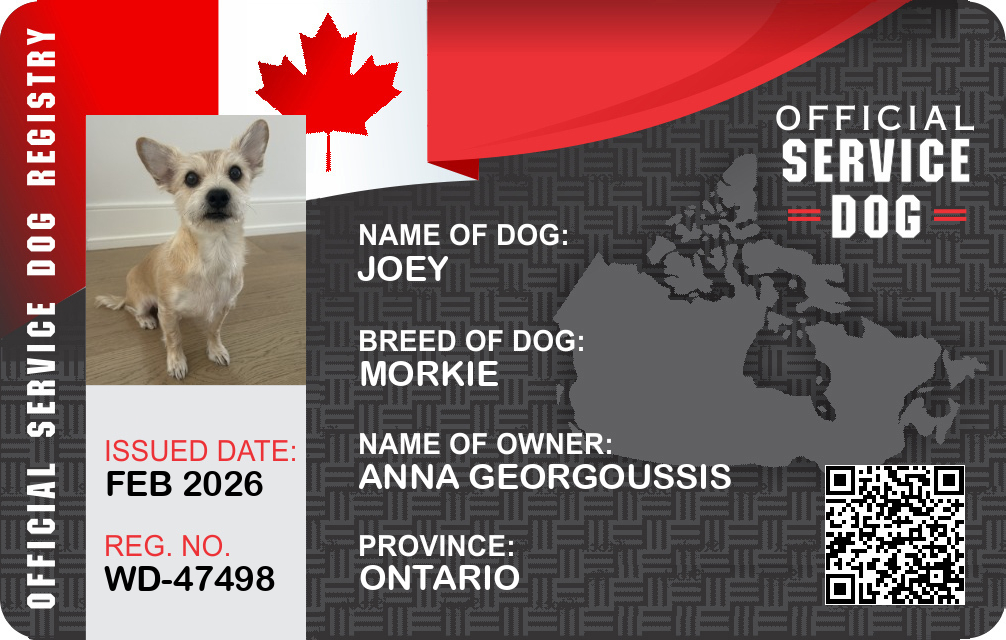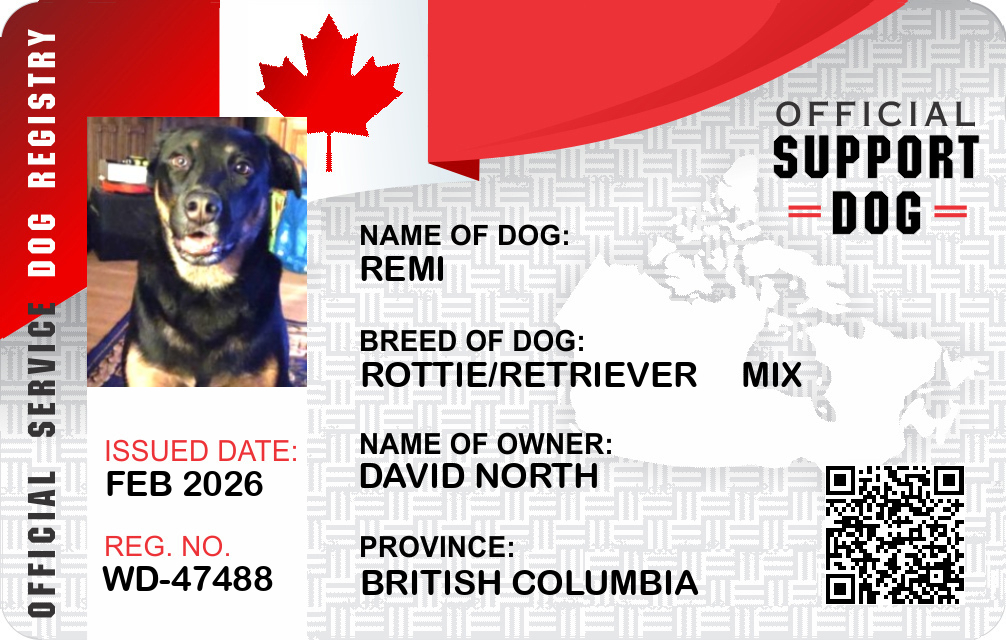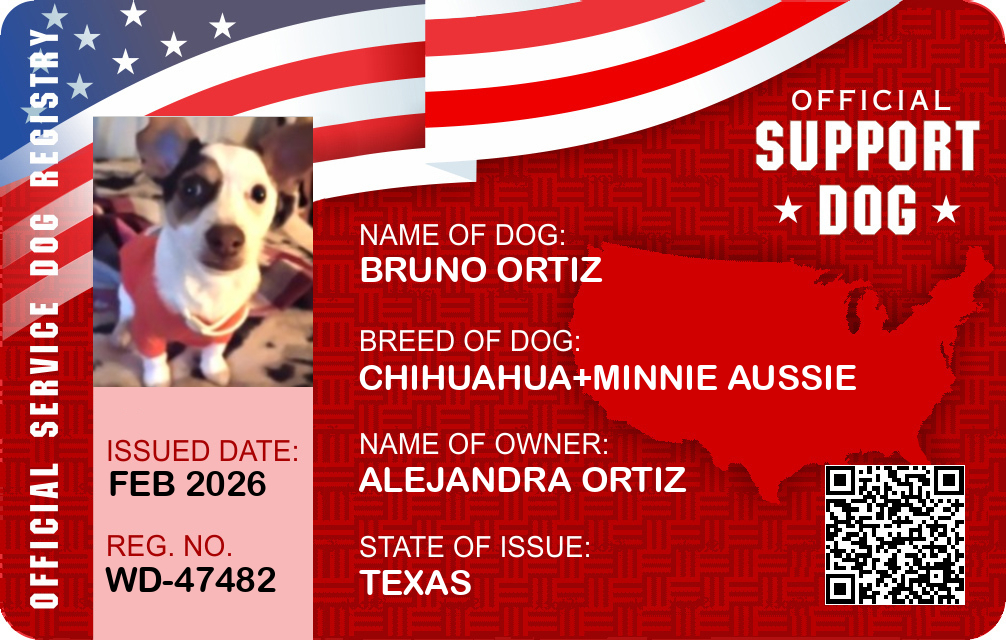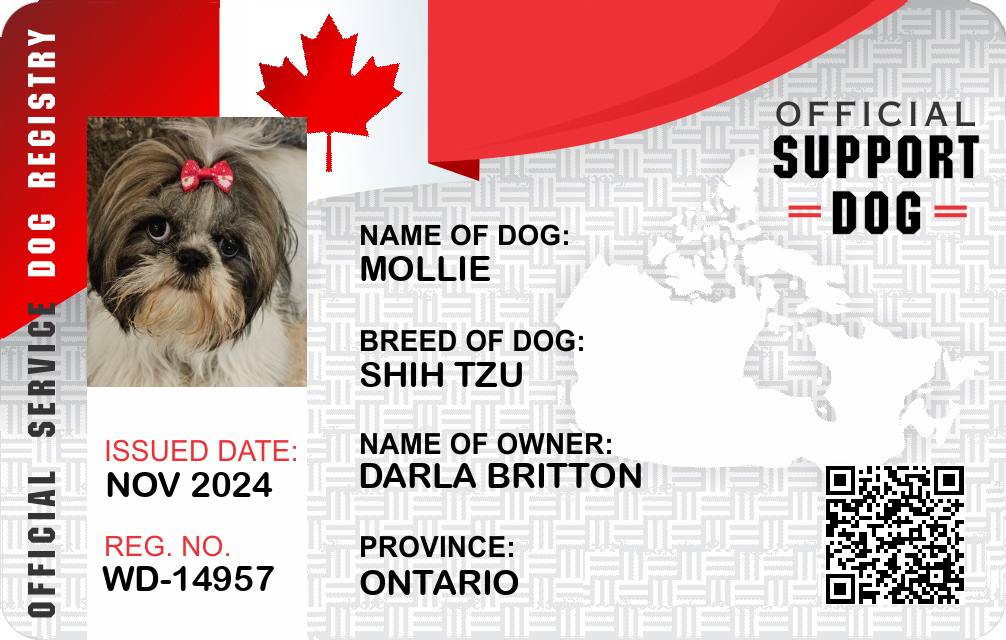New Jersey Service Dog Laws
Get Your Documents
Example State Cards

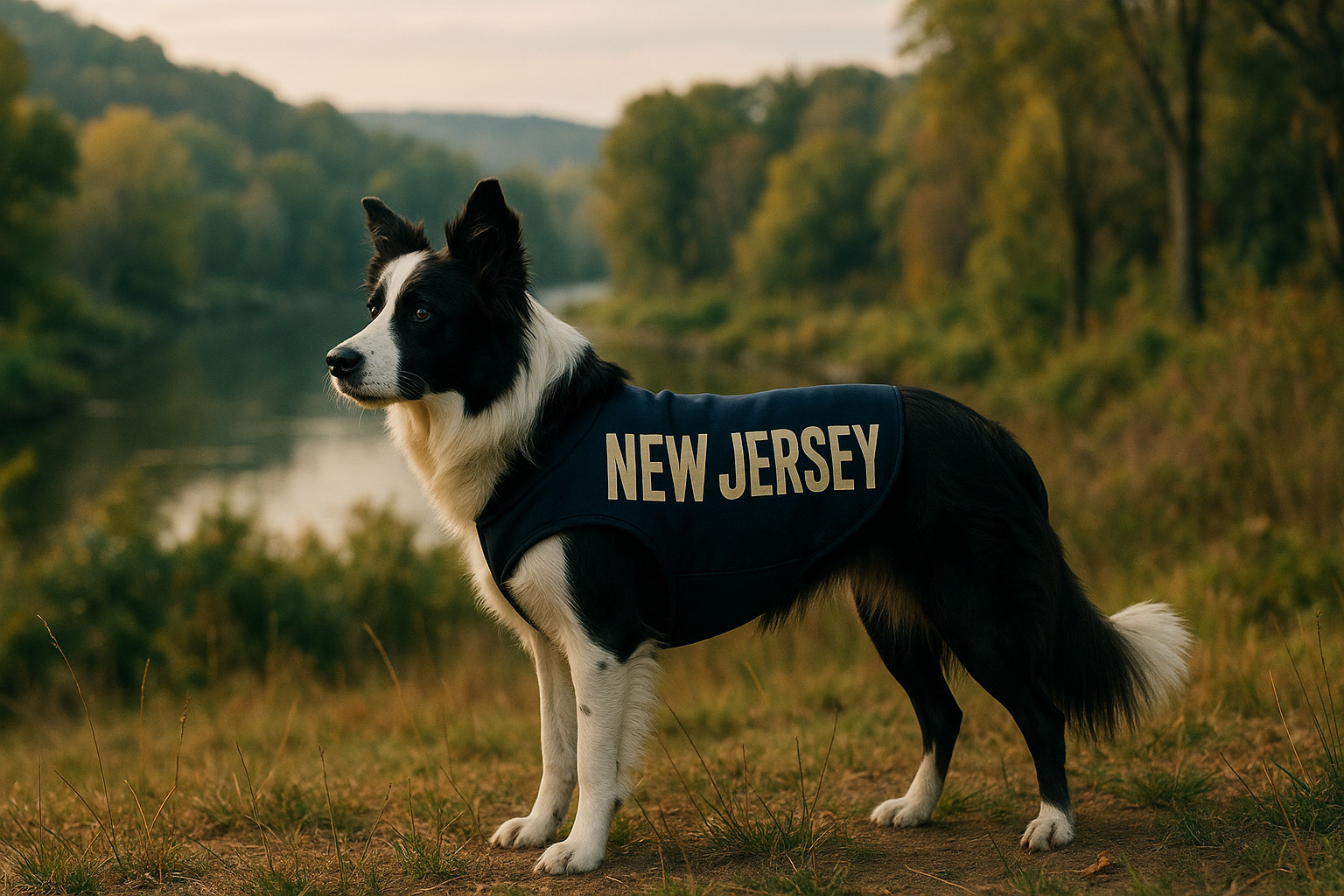
Overview of Service Dog and Legal Definitions in New Jersey
What is a Service Dog?
Service dogs are specially trained canines that perform tasks directly related to the disability of their handlers. According to both federal and state law, a service dog is defined as any dog individually trained to do work or perform tasks for the benefit of an individual with a disability, including physical, sensory, psychiatric, intellectual, or other mental disabilities. In New Jersey, as elsewhere under the Americans with Disabilities Act (ADA), service dogs are not considered pets, but rather working animals.
How Service Dogs Differ from Other Types of Assistance Animals
Service dogs are distinct from other types of assistance animals, such as emotional support animals (ESA) and therapy animals. While ESA provide comfort through their presence and potentially alleviate symptoms of mental illness, they are not trained to perform specific tasks related to their owner’s disability, unlike service dogs. Therapy animals, similarly, offer therapeutic support but are not task-trained for a specific individual’s disability. In New Jersey, as at the federal level, only dogs that are trained to perform specific tasks for individuals with disabilities are considered service animals with public access rights.
Key Federal Laws Affecting Service Dogs (e.g., ADA, FHA, ACAA)
Several key federal laws play pivotal roles in the rights afforded to service dogs and their handlers in New Jersey:
- Americans with Disabilities Act (ADA): This civil rights law prohibits discrimination against individuals with disabilities and mandates equal access to public accommodations, employment, transportation, State and local government facilities, and telecommunications. Under the ADA, service dogs are allowed in all public areas where members of the public are allowed to go.
- Fair Housing Act (FHA): This law prohibits discrimination in housing and ensures that people with disabilities are allowed to live with their service animals, even in housing that has a “no pets” policy. Service dogs are not considered pets under the FHA.
- Air Carrier Access Act (ACAA): This act prohibits discrimination in air travel and allows passengers to fly with their service animals in the cabin. The ACAA requires airlines to accommodate service dogs unless they pose a direct threat to the health or safety of others or cause significant disruption.
State-Specific Service Dog Laws in New Jersey
Housing Rights and Responsibilities
Under the Fair Housing Act as supplemented by New Jersey laws, individuals with disabilities have the right to keep service dogs in their residences, irrespective of any no-pet policies. Housing providers in New Jersey must make reasonable accommodations for service animals without charging pet fees. However, tenants are responsible for any damages the animal may cause to the property. Housing providers may require documentation to verify the disability and the need for a service dog, but this cannot be unreasonably demanding, nor can it infringe on the privacy rights of the individual seeking accommodation.
Public Access and Accommodation
New Jersey statutes align with the ADA in ensuring that service dogs are granted full access to public accommodations and commercial establishments, such as restaurants, hotels, and supermarkets. Only two questions can be legally asked by a business or public entity: if the dog is required because of a disability, and what task the dog has been trained to perform. They cannot request documentation or proof of training and should not ask about the nature of the person’s disability.
Transportation and Travel Rules
Public transportation in New Jersey, including buses, trains, and subways, is required to accommodate service dogs. Under the ACAA, airlines must transport service dogs free of charge in the aircraft cabin. New Jersey law also requires taxis and ride-share services to transport individuals with service dogs. Failure to accommodate service dogs can result in penalties and suits for discrimination.
Employment and Workplace Considerations
Under both state and federal law, employers in New Jersey are required to provide reasonable accommodations to employees with disabilities. If an employee requires a service dog as a reasonable accommodation to perform their job or access the workplace, employers must allow it unless doing so poses an undue hardship on the operation of the business or a direct threat to safety. Communication between employee and employer should be open and may include documentation addressing the necessity of the service dog in the workplace.
Documentation, Requirements, and Processes in New Jersey
Service Dog Documentation and Who Can Issue It
While service dogs in New Jersey and under the ADA do not require official certification, handlers may sometimes choose to acquire identification for practicality, even if not legally mandated. Health care providers may issue disability verification documents if required, especially when related to housing situations. Importantly, no legal provision mandates that service dogs be registered, and businesses or organizations should not demand certification as a condition for access.
Landlord, Business, and Provider Verification Rules
While service dog handlers don’t need to provide detailed documentation when accessing public spaces, landlords can request verification in a housing context, primarily to establish the necessity of the animal due to a disability. However, any verification process must respect privacy and confidentiality and be limited in scope to the disability and the animal’s role in alleviating it.
Rights, Limitations, and Legal Risks
Rights Service Dog Handlers Have in New Jersey
Handlers have the right to:
- Be accompanied by their service dog in all areas open to the public.
- Reside with their service dog regardless of pet policies, in housing covered by the FHA.
- Access public transportation and travel on airlines with their service dog.
- Reasonable adjustments in the workplace to accommodate their service dog.
Limits on Service Dog Protections and Common Restrictions
Handlers should recognize that:
- Service dogs must be under control at all times and be housebroken.
- Access can be denied if the dog poses a direct threat to the health or safety of others.
- Other animals besides dogs are generally not recognized as service animals under New Jersey and federal standards.
Penalties for Fraud or Misrepresentation
Fraudulently misrepresenting a pet as a service animal is a growing concern and is penalized under New Jersey law. Falsifying the status of an animal as a service dog can lead to fines and other sanctions, designed to preserve the integrity of service dog privileges and ensure they remain available for those genuinely in need.
Practical Guidance for Service Dog Handlers in New Jersey
How to Qualify for a Service Dog Legitimately
To qualify for a service dog under New Jersey laws, individuals must have a disability, as defined by the ADA, and the dog must be trained to perform a specific task directly related to that disability. Prospective handlers should seek reputable training organizations or trainers adept in disability-specific assistance training.
How to Talk to Landlords, Airlines, and Employers
Engage in open, educational communication. Present:
- Need-based reasons for a service dog.
- Descriptions of the tasks performed by the service dog.
- Verification of the disability when necessary but only to the extent required by law to preserve privacy.
Summary of Service Dog Laws in New Jersey
In summary, here are key rights, limitations, and practical tips for service dog handlers in New Jersey:
- Rights: Access to public areas, housing, transportation, and employment accommodations.
- Limitations: Dogs must be controllable and non-disruptive.
- Risks: Legal penalties for misrepresenting a pet as a service dog.
- Practical Tips:
- Engage with legitimate, knowledgeable training resources.
- Maintain open communications with landlords and employers.
- Stay informed on legal developments and protection practices.
By understanding these intricacies, service dog handlers in New Jersey can safeguard their rights and ensure that the needs and roles of their service animals are respected and supported across various societal facets.
Get Your Documents
Example State Cards





